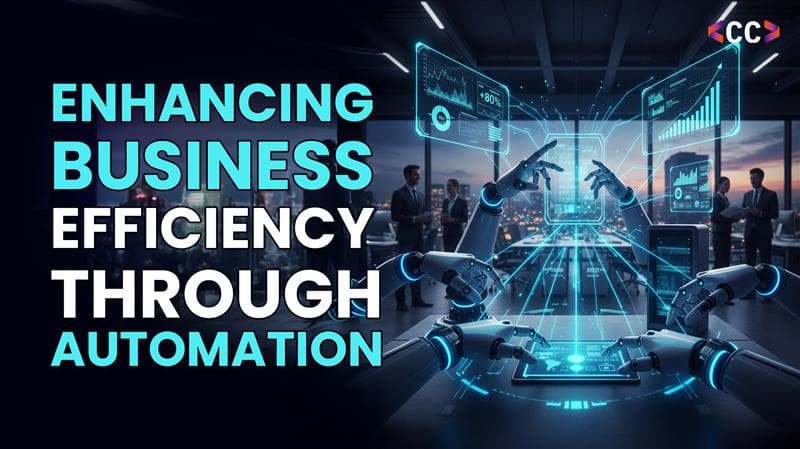Blockchain
3 months ago
Robotic Process Automation (RPA): Enhancing Business Efficiency Through Automation
What is Robotic Process Automation?
Robotic Process Automation (RPA) refers to the use of software bots designed to automate repetitive, rule-based tasks across various business applications. These bots mimic human actions like clicking, typing, and navigating systems, enabling organizations to streamline workflows, reduce errors, and enhance operational efficiency. RPA works across existing applications without requiring deep system integrations, making it a cost-effective automation solution.
Key Benefits of RPA
- Time Savings: By automating mundane and repetitive tasks, RPA frees employees to focus on more strategic and creative activities.
- Increased Accuracy: Unlike humans, bots do not suffer from fatigue or distraction, virtually eliminating errors in data entry and processing.
- Improved Security: RPA minimizes human interaction with sensitive data, reducing risks of data breaches and ensuring compliance with security protocols.
- Scalability: Bots can operate 24/7 and scale up rapidly to handle increased workloads during peak periods without additional staffing.
- Cost Efficiency: Automation reduces operational expenses related to manual labor, rework, and error correction.
- Compliance and Auditability: RPA logs all actions performed, creating transparent audit trails to support regulatory compliance.
How RPA Works
RPA software bots interact with user interfaces of applications to record, mimic, and execute workflows. Equipped with machine learning, some RPA systems continuously improve performance over time through experience, tackling increasingly complex tasks beyond simple rule-based automation.
RPA in Industry
Industries such as banking, healthcare, manufacturing, and telecommunications leverage RPA to accelerate digital transformation initiatives. Tasks like invoice processing, customer support automation, claims handling, and IT service management are increasingly automated with RPA, driving measurable gains in speed and quality.
Challenges and Considerations
Implementing RPA requires careful planning around process selection, data security, and change management. Ensuring alignment between IT and business teams maximizes the value delivered. Additionally, maintaining transparency and addressing ethical concerns helps build stakeholder trust.
The Future of RPA
The future of RPA is intertwined with AI and intelligent automation technologies, enabling more adaptive, cognitive systems that go beyond fixed rule execution. This convergence promises to unlock new capabilities for enterprise automation and employee empowerment.
Conclusion
Robotic Process Automation presents transformative opportunities for organizations aiming to optimize operations and elevate workforce productivity. Businesses interested in adopting or scaling RPA solutions benefit from partnering with experienced technology consultants. ChainCode Consulting LLP offers strategic expertise in deploying secure, scalable RPA implementations that align with enterprise goals, enabling organizations to navigate the automation journey effectively.

